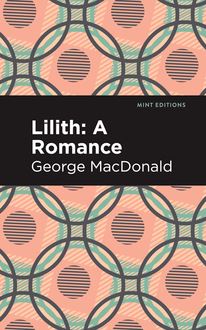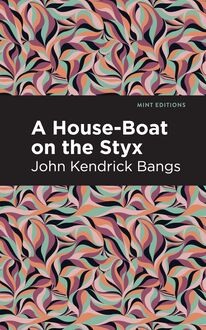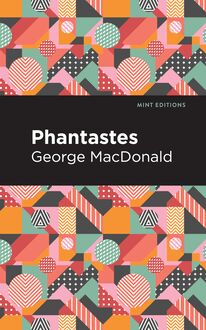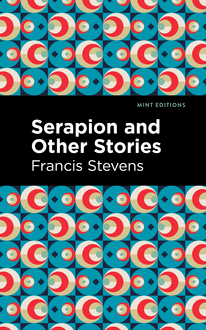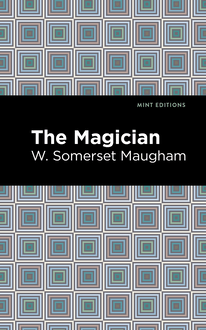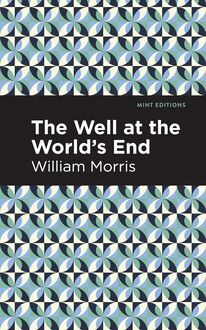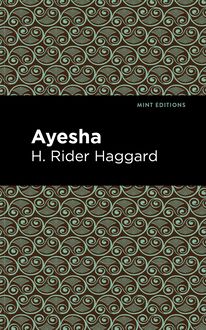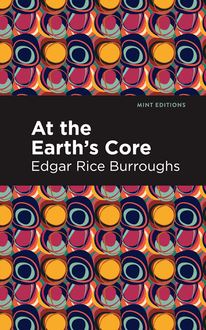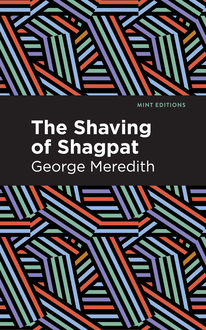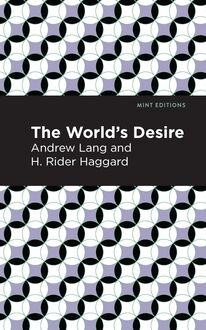-
 Univers
Univers
-
 Ebooks
Ebooks
-
 Livres audio
Livres audio
-
 Presse
Presse
-
 Podcasts
Podcasts
-
 BD
BD
-
 Documents
Documents
-
- Cours
- Révisions
- Ressources pédagogiques
- Sciences de l’éducation
- Manuels scolaires
- Langues
- Travaux de classe
- Annales de BEP
- Etudes supérieures
- Maternelle et primaire
- Fiches de lecture
- Orientation scolaire
- Méthodologie
- Corrigés de devoir
- Annales d’examens et concours
- Annales du bac
- Annales du brevet
- Rapports de stage
La lecture à portée de main
Vous pourrez modifier la taille du texte de cet ouvrage
Découvre YouScribe en t'inscrivant gratuitement
Je m'inscrisDécouvre YouScribe en t'inscrivant gratuitement
Je m'inscrisEn savoir plus
Vous pourrez modifier la taille du texte de cet ouvrage
En savoir plus

Description
A Strange Manuscript Found in a Copper Cylinder (1888) is a novel by James De Mille. Originally serialized in Harper’s Weekly, the novel was published posthumously and, at first, anonymously. Although De Mille’s work predated such popular Lost World novels as H. Rider Haggard’s She (1887) and King Solomon’s Mines (1885), it was published nearly a decade after his death, leading critics to assume he had merely written a derivative work of fiction. Recent scholarship, however, has sought to emphasize De Mille’s talents as a writer and importance in the historical development of literary science fiction. “The wind had failed, a deep calm had succeeded, and everywhere, as far as the eye could reach, the water was smooth and glassy. The yacht rose and fell at the impulse of the long ocean undulations, and the creaking of the spars sounded out a lazy accompaniment to the motion of the vessel.” Sailing in their yacht, a crew spots a copper cylinder afloat on the sunbeaten sea. Hauling it aboard, they open it to reveal a manuscript sealed from the elements containing the story of Adam More. Shipwrecked while returning to Britain from Tasmania, the sailor found himself stranded on a strange desert island near Antarctica. Soon, he stumbles upon a lost world of prehistoric plants and animals, a land of indescribable beauty and wonder. In the harsh volcanic landscape, he discovers a race of humans whose values are entirely foreign to his Western frame of mind. With a beautifully designed cover and professionally typeset manuscript, this edition of James De Mille’s A Strange Manuscript Found in a Copper Cylinder is a classic work of American science fiction reimagined for modern readers.
Sujets
Informations
| Publié par | Mint Editions |
| Date de parution | 16 novembre 2021 |
| Nombre de lectures | 0 |
| EAN13 | 9781513293875 |
| Langue | English |
| Poids de l'ouvrage | 1 Mo |
Informations légales : prix de location à la page 0,0500€. Cette information est donnée uniquement à titre indicatif conformément à la législation en vigueur.
Extrait
A Strange Manuscript Found in a Copper Cylinder
James De Mille
A Strange Manuscript Found in a Copper Cylinder was first published in 1888.
This edition published by Mint Editions 2021.
ISBN 9781513291024 | E-ISBN 9781513293875
Published by Mint Editions ®
minteditionbooks .com
Publishing Director: Jennifer Newens
Design & Production: Rachel Lopez Metzger
Project Manager: Micaela Clark
Typesetting: Westchester Publishing Services
C ONTENTS I. T HE F INDING OF THE C OPPER C YLINDER II. A DRIFT IN THE A NTARCTIC O CEAN III. A W ORLD OF F IRE AND D ESOLATION IV. T HE S IGHT OF H UMAN B EINGS V. T HE T ORRENT S WEEPING U NDER THE M OUNTAINS VI. T HE N EW W ORLD VII. S CIENTIFIC T HEORIES AND S CEPTICISM VIII. T HE C AVE- D WELLERS IX. T HE C AVERN OF THE D EAD X. T HE S ACRED H UNT XI. T HE S WAMP M ONSTER XII. T HE B ALEFUL S ACRIFICE XIII. T HE A WFUL “ M ISTA K OSEK” XIV. I L EARN M Y D OOM XV. T HE K OHEN IS I NEXORABLE XVI. T HE K OSEKIN XVII. B ELIEF AND U NBELIEF XVIII. A V OYAGE OVER THE P OLE XIX. T HE W ONDERS OF THE “ A MIR” XX. T HE D ARK M AIDEN L AYELAH XXI. T HE F LYING M ONSTER XXII. E SCAPE XXIII. T HE I SLAND OF F IRE XXIV. R ECAPTURE XXV. F ALLING, LIKE I CARUS, INTO THE S EA XXVI. G RIMM’S L AW A GAIN XXVII. O XENDEN P REACHES A S ERMON XXVIII. I N P RISON XXIX. T HE C EREMONY OF S EPARATION XXX. T HE D AY OF S ACRIFICE XXXI. C ONCLUSION
I
T HE F INDING OF THE C OPPER C YLINDER
I t occurred as far back as February 15, 1850. It happened on that day that the yacht Falcon lay becalmed upon the ocean between the Canaries and the Madeira Islands. This yacht Falcon was the property of Lord Featherstone, who, being weary of life in England, had taken a few congenial friends for a winter’s cruise in these southern latitudes. They had visited the Azores, the Canaries, and the Madeira Islands, and were now on their way to the Mediterranean.
The wind had failed, a deep calm had succeeded, and everywhere, as far as the eye could reach, the water was smooth and glassy. The yacht rose and fell at the impulse of the long ocean undulations, and the creaking of the spars sounded out a lazy accompaniment to the motion of the vessel. All around was a watery horizon, except in the one place only, toward the south, where far in the distance the Peak of Teneriffe rose into the air.
The profound calm, the warm atmosphere, the slow pitching of the yacht, and the dull creaking of the spars all combined to lull into a state of indolent repose the people on board. Forward were the crew; some asleep, others smoking, others playing cards. At the stern were Oxenden, the intimate friend of Featherstone, and Dr. Congreve, who had come in the double capacity of friend and medical attendant. These two, like the crew, were in a state of dull and languid repose. Suspended between the two masts, in an Indian hammock, lay Featherstone, with a cigar in his mouth and a novel in his hand, which he was pretending to read. The fourth member of the party, Melick, was seated near the mainmast, folding some papers in a peculiar way. His occupation at length attracted the roving eyes of Featherstone, who poked forth his head from his hammock, and said in a sleepy voice:
“I say, Melick, you’re the most energetic fellah I ever saw. By Jove! you’re the only one aboard that’s busy. What are you doing?”
“Paper boats,” said Melick, in a business-like tone.
“Paper boats! By Jove!” said Featherstone. “What for?”
“I’m going to have a regatta,” said Melick. “Anything to kill time, you know.”
“By Jove!” exclaimed Featherstone again, raising himself higher in his hammock, “that’s not a bad idea. A wegatta! By Jove! glowious! glowious! I say, Oxenden, did you hear that?”
“What do you mean by a regatta?” asked Oxenden, lazily.
“Oh, I mean a race with these paper boats. We can bet on them, you know.”
At this Featherstone sat upright, with his legs dangling out of the hammock.
“By Jove!” he exclaimed again. “Betting! So we can. Do you know, Melick, old chap, I think that’s a wegular piece of inspiration. A wegatta! and we can bet on the best boat.”
“But there isn’t any wind,” said Oxenden.
“Well, you know, that’s the fun of it,” said Melick, who went solemnly on as he spoke, folding his paper boats; “that’s the fun of it. For you see if there was a wind we should be going on ourselves, and the regatta couldn’t come off; but, as it is, the water is just right. You pick out your boat, and lay your bet on her to race to some given point.”
“A given point? But how can we find any?”
“Oh, easily enough; something or anything—a bubble’ll do, or we can pitch out a bit of wood.”
Upon this Featherstone descended from his perch, and came near to examine the proceedings, while the other two, eager to take advantage of the new excitement, soon joined him. By this time Melick had finished his paper boats. There were four of them, and they were made of different colors, namely, red, green, yellow, and white.
“I’ll put these in the water,” said Melick, “and then we can lay our bets on them as we choose. But first let us see if there is anything that can be taken as a point of arrival. If there isn’t anything, I can pitch out a bit of wood, in any direction which may seem best.”
Saying this, he went to the side, followed by the others, and all looked out carefully over the water.
“There’s a black speck out there,” said Oxenden.
“So there is,” said Featherstone. “That’ll do. I wonder what it is?”
“Oh, a bit of timber,” said Melick. “Probably the spar of some ship.”
“It don’t look like a spar,” said the doctor; “it’s only a round spot, like the float of some net.”
“Oh, it’s a spar,” said Melick. “It’s one end of it, the rest is under water.”
The spot thus chosen was a dark, circular object, about a hundred yards away, and certainly did look very much like the extremity of some spar, the rest of which was under water. Whatever it was, however, it served well enough for their present purpose, and no one took any further interest in it, except as the point toward which the paper boats should run in their eventful race.
Melick now let himself down over the side, and placed the paper boats on the water as carefully as possible. After this the four stood watching the little fleet in silence. The water was perfectly still, and there was no perceptible wind, but there were draughts of air caused by the rise and fall of the yacht, and these affected the tiny boats. Gradually they drew apart, the green one drifting astern, the yellow one remaining under the vessel, while the red and the white were carried out in the direction where they were expected to go, with about a foot of space between them.
“Two to one on the red!” cried Featherstone, betting on the one which had gained the lead.
“Done,” said Melick, promptly taking his offer.
Oxenden made the same bet, which was taken by Melick and the doctor.
Other bets were now made as to the direction which they would take, as to the distance by which the red would beat the white, as to the time which would be occupied by the race, and as to fifty other things which need not be mentioned. All took part in this; the excitement rose high and the betting went on merrily. At length it was noticed that the white was overhauling the red. The excitement grew intense; the betting changed its form, but was still kept up, until at last the two paper boats seemed blended together in one dim spot which gradually faded out of sight.
It was now necessary to determine the state of the race, so Featherstone ordered out the boat. The four were soon embarked, and the men rowed out toward the point which had been chosen as the end of the race. On coming near they found the paper boats stuck together, saturated with water, and floating limp on the surface. An animated discussion arose about this. Some of the bets were off, but others remained an open question, and each side insisted upon a different view of the case. In the midst of this, Featherstone’s attention was drawn to the dark spot already mentioned as the goal of the race.
“That’s a queer-looking thing,” said he, suddenly. “Pull up, lads, a little; let’s see what it is. It doesn’t look to me like a spar.”
The others, always on the lookout for some new object of interest, were attracted by these words, and looked closely at the thing in question. The men pulled. The boat drew nearer.
“It’s some sort of floating vessel,” said Oxenden.
“It’s not a spar,” said Melick, who was at the bow.
And as he said this he reached out and grasped at it. He failed to get it, and did no more than touch it. It moved easily and sank, but soon came up again. A second time he grasped at it, and with both hands. This time he caught it, and then lifted it out of the water into the boat. These proceedings had been watched with the deepest interest; and now, as this curious floating thing made its appearance among them, they all crowded around it in eager excitement.
“It looks like a can of preserved meat,” said the doctor.
“It certainly is a can,” said Melick, “for it’s made of metal; but as to preserved meat, I have my doubts.”
The article in question was made of metal and was cylindrical in shape. It was soldered tight and evidently contained something. It was about eighteen inches long and eight wide. The nature of the metal was not easily perceptible, for it was coated with slime, and covered over about half its surface with barnacles and sea-weed. It was not heavy, and would have floated higher out of the water had it not been for these encumbrances.
“It’s some kind of preserved meat,” said the doctor. “Perhaps something good—game, I dare say—yes, Yorkshire game-pie. They pot all sorts of things now.”
“If it’s game,” said Oxenden, “it’ll be rather high by this time. Man alive! look at those weeds and shells. It must have been floating for ages.”
“It’s my belief,” said Featherstone, “that it’s part of the provision
-
 Univers
Univers
-
 Ebooks
Ebooks
-
 Livres audio
Livres audio
-
 Presse
Presse
-
 Podcasts
Podcasts
-
 BD
BD
-
 Documents
Documents
-
Jeunesse
-
Littérature
-
Ressources professionnelles
-
Santé et bien-être
-
Savoirs
-
Education
-
Loisirs et hobbies
-
Art, musique et cinéma
-
Actualité et débat de société
-
Jeunesse
-
Littérature
-
Ressources professionnelles
-
Santé et bien-être
-
Savoirs
-
Education
-
Loisirs et hobbies
-
Art, musique et cinéma
-
Actualité et débat de société
-
Actualités
-
Lifestyle
-
Presse jeunesse
-
Presse professionnelle
-
Pratique
-
Presse sportive
-
Presse internationale
-
Culture & Médias
-
Action et Aventures
-
Science-fiction et Fantasy
-
Société
-
Jeunesse
-
Littérature
-
Ressources professionnelles
-
Santé et bien-être
-
Savoirs
-
Education
-
Loisirs et hobbies
-
Art, musique et cinéma
-
Actualité et débat de société
- Cours
- Révisions
- Ressources pédagogiques
- Sciences de l’éducation
- Manuels scolaires
- Langues
- Travaux de classe
- Annales de BEP
- Etudes supérieures
- Maternelle et primaire
- Fiches de lecture
- Orientation scolaire
- Méthodologie
- Corrigés de devoir
- Annales d’examens et concours
- Annales du bac
- Annales du brevet
- Rapports de stage
